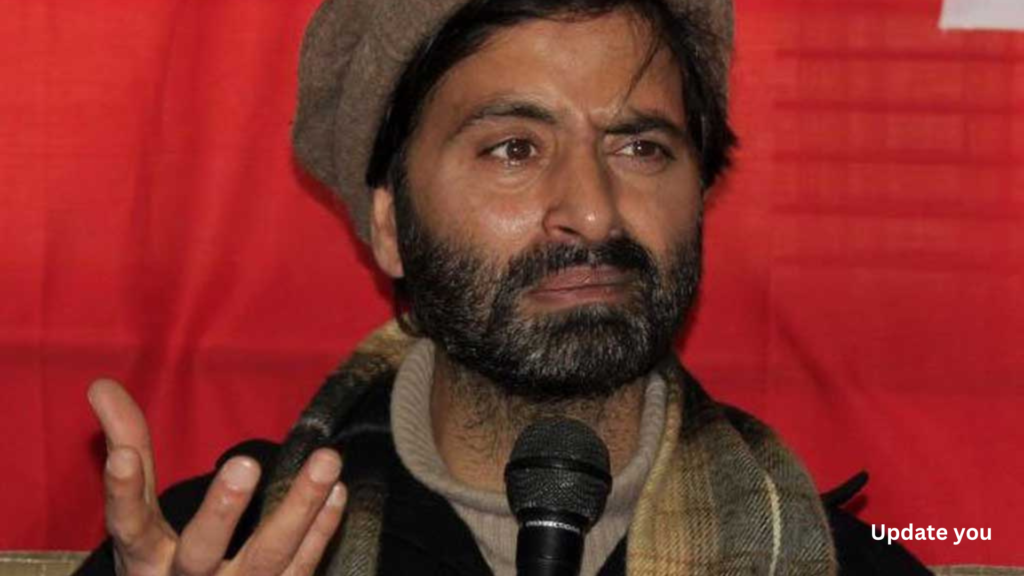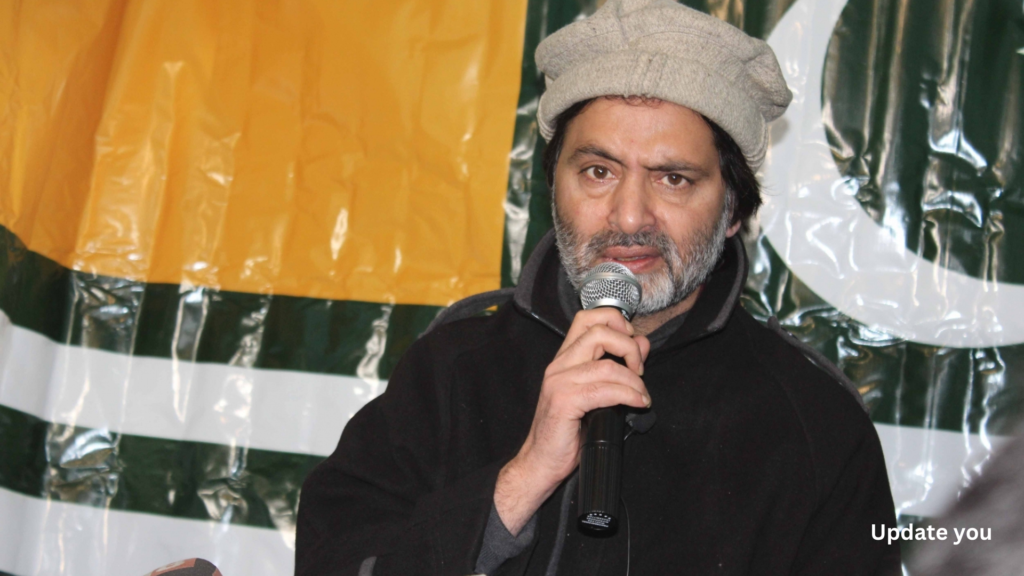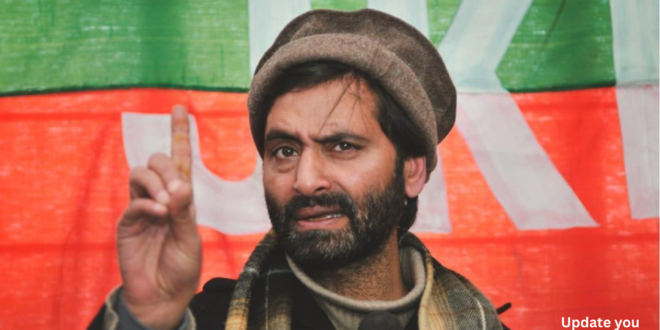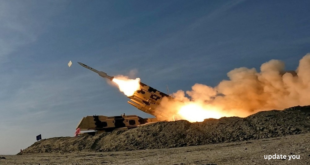yasin malik: Your understanding of the Kashmir insurgency may be incomplete without examining Yasin Malik’s pivotal role. As a prominent separatist leader, his influence extended far beyond the valley’s borders. This article delves into Malik’s journey, from his student activism days to his eventual embrace of militancy. It explores the ideological underpinnings that fueled his fight against Indian rule in the disputed region. Unraveling Malik’s narrative offers valuable insights into the complexities surrounding one of the world’s most protracted conflicts.
Background on Yasin Malik
A Life of Struggle
Born in 1966 in Srinagar, Yasin Malik witnessed the heavy- handed tactics of Indian security forces from a young age, shaping his views on the conflict in Kashmir. As a teenager in 1986, he was first arrested and tortured for distributing pro- independence stickers, sparking his lifelong commitment to the Kashmiri separatist cause. Source
From Militancy to Non-Violence
In the late 1980s, angered by alleged rigging of elections by India, Malik crossed into Pakistan for arms training. He returned as a core member of the Jammu Kashmir Liberation Front (JKLF), waging a guerilla war against Indian forces that included the 1989 kidnapping of Rubaiya Sayeed. Source After being captured in 1991, Malik renounced violence upon his release in 1994. He led the JKLF’s shift to non-violent civil resistance, demanding a trilateral dialogue between India, Pakistan and Kashmiri representatives on self-determination. Source
Decades of Detention
Over the years, Malik has faced numerous arrests and extended detentions by Indian authorities under controversial anti-terror laws. In 2022, he was convicted of funding terrorism and criminal conspiracy, receiving a life sentence that sparked protests in Kashmir. Source

Malik’s Role in the Kashmir Insurgency
The Origins of Insurgency
The roots of Yasin Malik’s involvement in the Kashmir insurgency can be traced back to the fateful 1987 state elections, which were widely alleged to have been rigged by the Indian government. Angered by this subversion of democracy, Malik and thousands of other Kashmiri youth crossed over to Pakistan for arms training, determined to fight against Indian rule in the region. Upon his return, Malik headed the Jammu and Kashmir Liberation Front (JKLF), the first militant outfit to declare an armed rebellion in Indian-administered Kashmir.
Militancy and Kidnapping yasin malik
As a core member of the JKLF’s ‘HAJY’ group, Malik played a pivotal role in the insurgency that engulfed the Kashmir Valley in the late 1980s and early 1990s. The JKLF was accused of carrying out several high-profile attacks, including the kidnapping of Rubaiya Sayeed, the daughter of the then Union Home Minister Mufti Mohammad Sayeed, in 1989. This brazen act was a “cause célèbre” for the group and helped galvanize ground support for its separatist ideology.
The Turn to Non-Violence
However, by the early 1990s, the JKLF had lost favor with Pakistan, which began supporting the pro-Pakistan Hizbul Mujahideen militant group instead. Many JKLF militants were killed or captured during this period, prompting Malik to declare a ceasefire in 1994 and renounce violence. This unpopular decision split the JKLF into two camps and earned Malik hatred among sections in Pakistan, but it also won him the faith of many in India who saw him as a potential interlocutor for a political resolution to the Kashmir conflict.
Violent Tactics Used by Malik’s JKLF
Kidnappings and Targeted Attacks yasin malik
In the late 1980s, the Jammu Kashmir Liberation Front (JKLF) under Yasin Malik’s leadership emerged as the vanguard of the insurgency against Indian rule in Kashmir. The group adopted violent tactics, including high-profile kidnappings and targeted killings of government and security officials.
One of the JKLF’s most brazen acts was the 1989 kidnapping of Rubiya Sayeed, the daughter of then Indian Home Minister Mufti Mohammed Sayeed. The group also carried out attacks on Indian Air Force officers, killing four in Srinagar.
Guerrilla Warfare Against Security Forces With initial support from Pakistan’s intelligence agency ISI, the JKLF waged a fierce guerrilla campaign against Indian forces in the Kashmir Valley. Malik’s “HAJY” group of militants frequently clashed with army and paramilitary troops.
However, as more radical pro-Pakistan groups like Hizbul Mujahideen gained prominence, the ISI shifted its backing away from the pro-independence JKLF. This starved the JKLF of funds and weapons, leading to its decline.
Crackdown and Wipeout by Indian Forces
By the early 1990s, the Indian security forces had killed or captured most JKLF militants in a brutal crackdown. This, combined with the group’s loss of Pakistani backing, left the JKLF severely weakened compared to other Kashmir separatist outfits. The turning point came in 1996 when the JKLF’s commander Shabbir Siddiqui and 37 other members were killed in an encounter with Indian forces. This virtually wiped out the JKLF’s militant wing.

Arrests and Imprisonment of Yasin Malik
A Life Sentence for Terrorism
In May 2022, a special court in New Delhi sentenced Yasin Malik, a prominent Kashmiri pro-independence leader, to life imprisonment on charges of “terrorist” activities and “terror” funding. The court found Malik, the chief of the now-banned Jammu and Kashmir Liberation Front (JKLF), guilty of participating in terrorist acts, criminal conspiracy, sedition, and illegally raising funds. Malik pleaded guilty to all charges, leading the court to hand down two concurrent life sentences along with five 10-year jail terms. This harsh sentencing triggered protests in parts of Indian-administered Kashmir and drew condemnation from Pakistan, which termed it a “sham trial.”
Decades of Insurgency and Imprisonment yasin malik
The JKLF, formed in 1977, originally sought independence for Kashmir through armed resistance against Indian rule, with help from Pakistan. A bomb attack by the group in 1988 is considered the start of the Kashmiri insurgency that has raged for over three decades.
Malik was one of the first rebels to cross into Pakistan for weapons training in the late 1980s. He was arrested in 2019 after the JKLF was banned, but had spent years in Indian prisons previously for his secessionist activities.
Malik’s Current Status and Impact on Kashmir
Sentencing and Imprisonment yasin malik
Yasin Malik, the prominent Kashmiri separatist leader, was recently sentenced to life imprisonment by an Indian court after being convicted on charges of terrorist acts, raising funds illegally, and criminal conspiracy. The court found him guilty under stringent anti-terror laws, including the Unlawful Activities Prevention Act (UAPA) and sedition charges.
Malik was the founder of the Jammu and Kashmir Liberation Front (JKLF), one of the first armed rebel groups seeking an independent Kashmir. While he had renounced violence in 1994 and adopted peaceful methods, the Indian government arrested him in 2019 after banning the JKLF.
Blow to Separatist Movement
Malik’s conviction and harsh sentencing are seen as a significant setback for the Kashmiri separatist movement. As a key figure advocating for Kashmir’s independence from both India and Pakistan, his imprisonment has dealt a blow to the credibility of non-violent separatist leaders.
The Indian government’s crackdown on Malik and other separatist figures is viewed as an attempt to weaken the separatist movement and consolidate control over the region. However, this hardline approach may further alienate Kashmiris and complicate efforts to find a negotiated settlement to the long-standing conflict.
Complicated Political Situation
Malik’s sentencing has further complicated the already tense political situation in Kashmir. His supporters and family have appealed to international bodies, urging them to intervene and “save the life of a warrior of his motherland.”
While the Indian government sees Malik’s imprisonment as a victory against terrorism, it may have inadvertently fueled resentment among Kashmiris and pushed more towards militancy. The impact on the broader separatist landscape remains uncertain, as the long-standing Kashmir conflict remains unresolved.

 Update
Update




